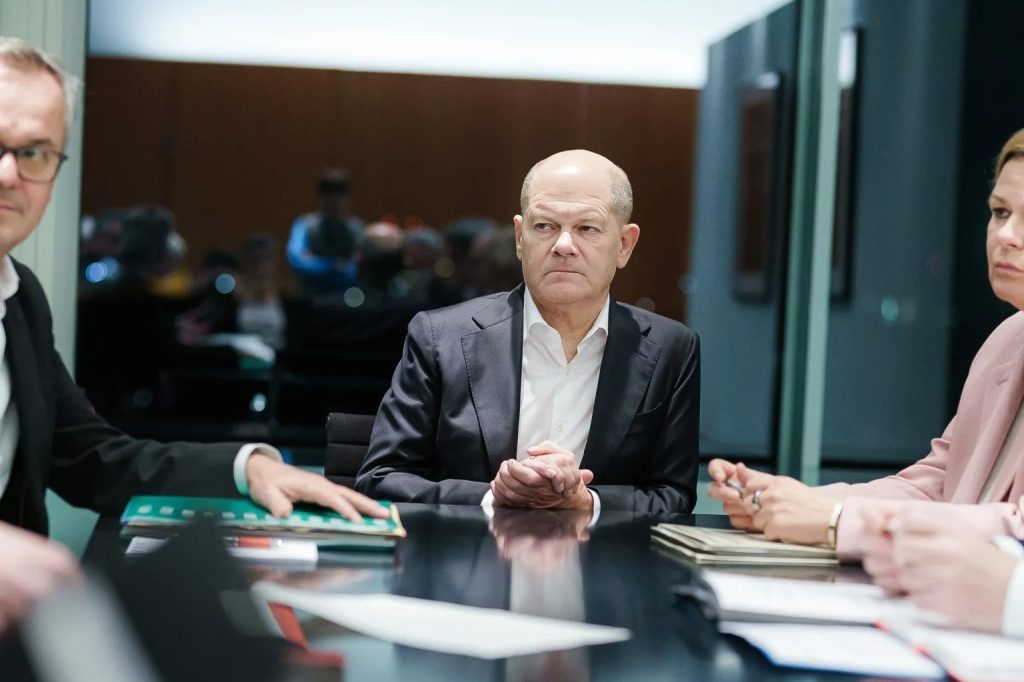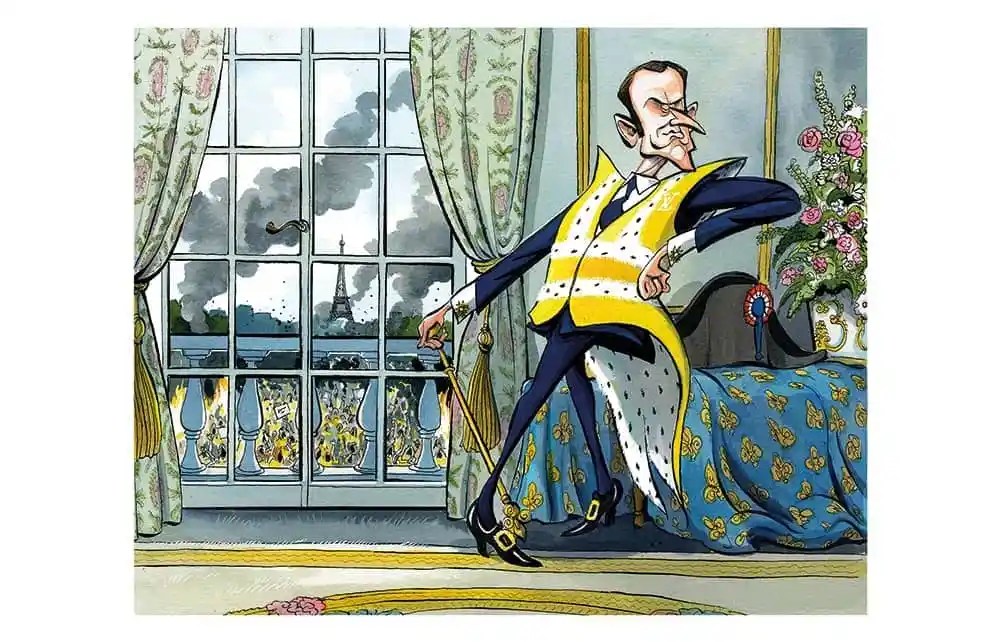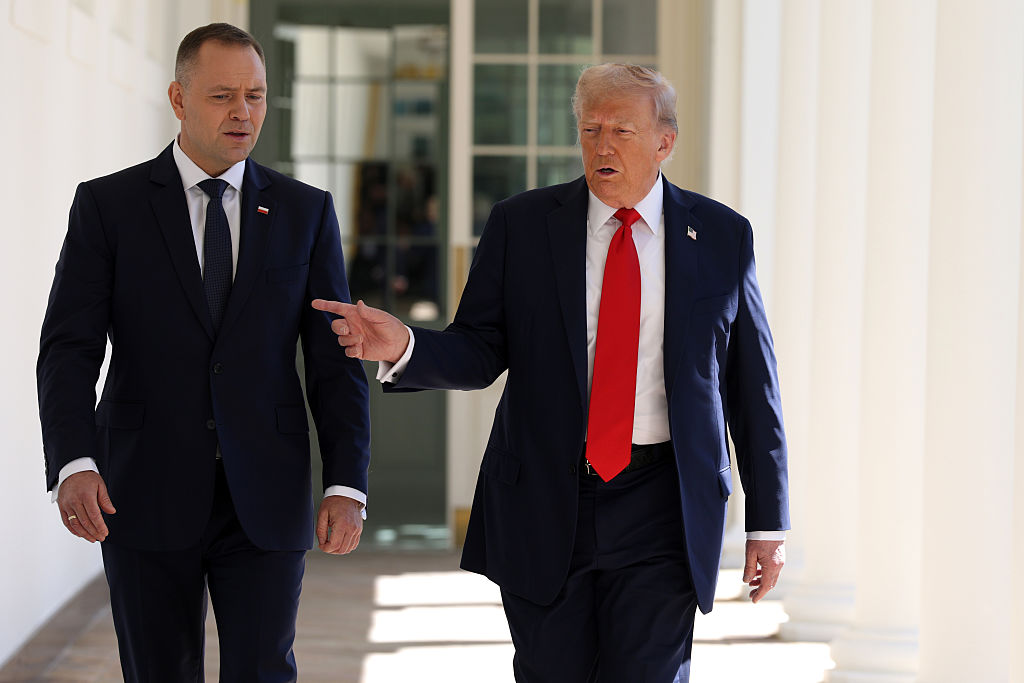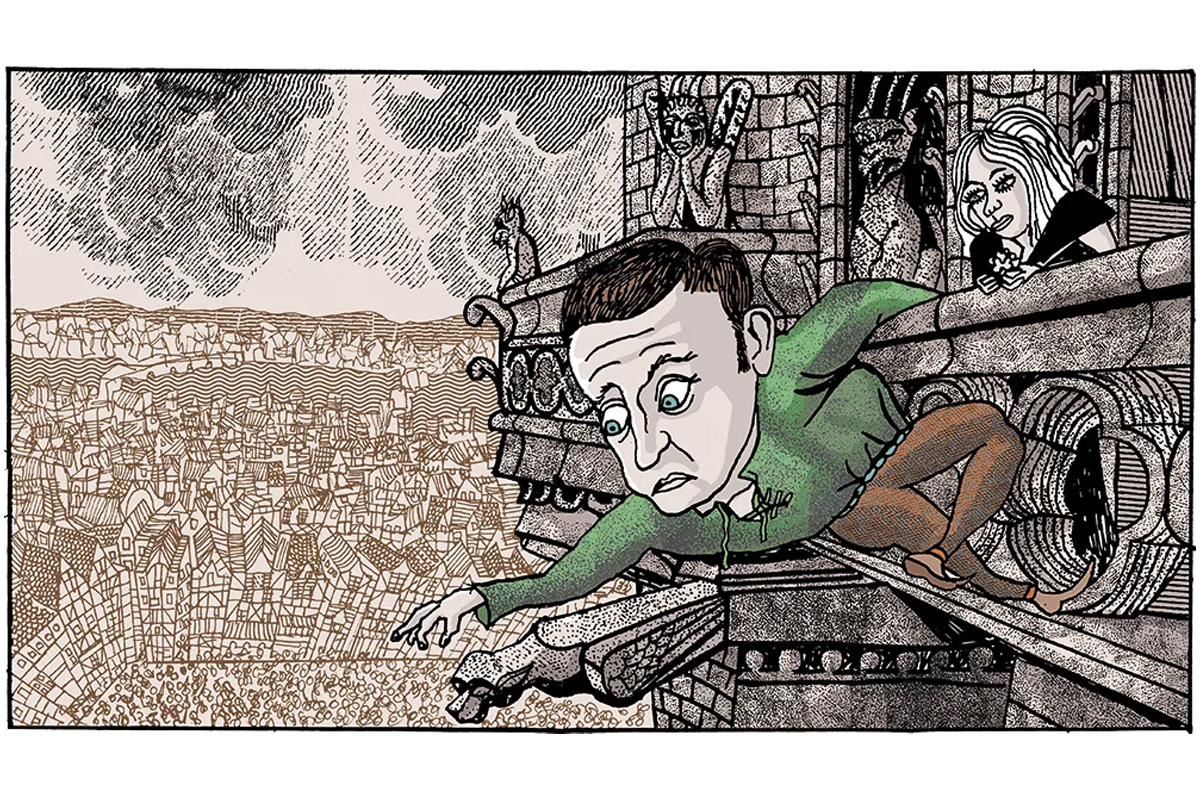In a knife attack in the Bavarian town of Aschaffenburg, a two-year-old boy and a forty-one-year-old man were killed in a park on Wednesday. Three more people were injured, among them two-year-old girl. A suspect has been arrested and identified as an Afghan national with a history of violence and psychiatric issues.
The horrific details of the incident were released by police and the Bavarian minister of the interior Joachim Herrmann shortly after and caused widespread outrage. The twenty-eight-year-old suspect reportedly targeted a particular boy, who was in the park with other children from his kindergarten group. He walked up to him and stabbed him to death with a kitchen knife. A bystander intervened and was also killed.
The suspect then stabbed a small girl in the neck three times before attacking another seventy-two-year-old man. A kindergarten teacher broke her arm as she tried to flee. The injured victims were taken to hospital and don’t appear to be in critical condition. Other bystanders and police chased down the perpetrator. He was arrested and taken into custody.
Germany’s mainstream parties will be worried that the anger, frustration and fear triggered by this attack will fan the flames of the Alternative für Deutschland
The local public reacted with deep shock. “I’m just frightened because this could have been us,” one young woman told the German news outlet Die Welt, adding: “we’re afraid to walk down the street.” Another woman said, “this kind of thing does something to you…when you leave the house now you feel unsafe.”
German politicians appeared visibly shaken by the incident. Economics Minister and Vice Chancellor Robert Habeck said “terrible isn’t strong enough a word. From what I’ve read so far this couldn’t have been more brutal and perverse.” The Bavarian minister president Markus Soder called it a “vile deed.”
Fellow Bavarian politician Klaus Holetschek went even further, saying that while he was sad and full of empathy for the victims, his main emotion was “anger.” “At the end of the day,” he said, “the state must fully protect its citizens — there must not be any more misguided tolerance.”
The incident came just a month after the Christmas market attack in Magdeburg in which six people were killed and at least 299 wounded when a car plowed into the crowds at high speed. The driver was arrested on the scene and identified as Taleb al-Abdulmohsen, who came to Germany from Saudi Arabia in 2006 and was known to the authorities for making terrorist threats.
The two attacks are not directly related, but they fall into a recent spate of incidents in which the suspects had claimed asylum in Germany and had then gone on to commit serious acts of violence. What many Germans will take from this is that the authorities were unable to stop any of the men from killing, injuring and terrorizing innocent people, including children.
Even Chancellor Olaf Scholz issued a sharply-worded statement that went much further than the usual expressions of empathy and promises to investigate the incident and punish the perpetrator. “That isn’t enough,” he wrote, adding that he was “fed up with such brutal acts occurring every few weeks in our country — committed by perpetrators who had originally come to us to seek protection. In light of this, misguided tolerance is completely inadequate. The authorities must investigate promptly why the assassin was still in Germany in the first place. From those findings consequences must follow — talk is not enough.”
Scholz’s opponent Friedrich Merz, the man most likely to become the German chancellor following the snap elections on February 23 also demanded action: “It can’t go on like this. We must restore law and order.”
Germany’s mainstream parties will be worried that the anger, frustration and fear triggered by this most recent attack will fan the flames of Alternative für Deutschland (AfD) whose core issue is immigration. They are currently polling in second place on around a fifth of the vote, and have recently sharpened their manifesto further, embracing the idea of mass deportations of foreigners from Germany under the term “remigration,” which the party had previously dropped.
Responding to the Aschaffenburg attack, AfD leader Alice Weidel immediately took to X to point out that the incident happened in Bavaria, which is run by the conservative CSU. The CSU has also promised tighter rules on immigration should it come into power together with its sister party, Merz’s CDU.
Weidel has argued for some time that the conservatives may talk tough on immigration but won’t do enough on it. Indicating that her party would go much further than border closures and deport people already in the country, she responded to the Aschaffenburg attack with the demand: “Remigration now!”
These brutal murders will have political consequences. Mainstream parties in Germany are beginning to recognize that an increasing number of Germans no longer feel safe, and that they expect politicians to take their concerns seriously. Whether they can win back trust fast enough with only weeks to go until the elections remains to be seen.
What is already clear, however, is that many voters want to see genuine change in the areas of public safety and immigration regardless of who wins the election. If the mainstream parties manage to form another coalition and keep the AfD out of power, as looks currently likely, they will have to work together on these issues, and fast, or else the next election may produce a very different result.

























